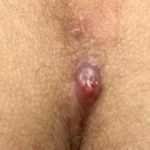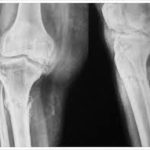What is Encopresis?
Encopresis can be defined as the voluntary or involuntary, repetitive passage of stool by a child that may be expected to have been toilet trained and are able to exercise bowel control. It is also known as soiling or fecal incontinence.

Children suffering from encopresis usually suffer from constipation first. Soiling is usually a sign of chronic constipation. This usually happens when fecal matter collects in the rectum and colon and becomes to full it starts to leak staining innerwear. As a result continuous stool retention causes swelling of the bowels and may eventually lead to loss of control over bowel movements.
Risk Factors
Unfortunately, encopresis is common with boys than it is with girls. There are other factors that increase the chances of you having encopresis this includes;
- The use of medication that may cause constipation, such as cough suppressants
- Suffering from attention-deficit/hyperactivity disorder(ADHD)
- Suffering from depression or anxiety or having autism spectrum disorder.
Children who suffer from encopresis may experience a variety of emotions that may include shame, anger, frustration or embarrassment. They are an easy target for bullies and are more likely to be teased or criticized. This may, in turn, lead to depression and low self-esteem. It may require your child to go through therapy to overcome the depression and a like.
Causes of Encopresis
The causes of encopresis include emotional issues and constipation.
Constipation
Most cases of constipation are as a result of chronic constipation, this is characterized by the child’s stool being hard, dry, and even painful to pass.
This may result to the child being reluctant to go the toilet. This worsens the situation as the longer the fecal matter is retained in the colon, the harder it is for the child to pass the stool. The moment the colon gets full, stool may leak or there may be loss of control over bowel movement.
Emotional issues
Emotional stress can cause encopresis. This may be attributed to by the process of toilet training the child underwent, changes in life such as shifting from breast-milk to cows-milk, or even starting school. Children may refuse to use the restrooms in school due to a variety of factors such as taunting, lack of privacy, or even the fact that the surrounding is noisy may intimidate the child.
Symptoms
There are various signs and symptoms to watch for in a child suffering from encopresis. The child may:
- constipation with dry and hard stool that may cause pain when passing
- passing of large fecal matter that may clog the toilet
- avoiding passing stool as a result of the pain experienced
- long periods between bowel movements
- no appetite
- presence of abdominal pain
- leakage of stool on innerwear.
You should seek a physician help when your child is toilet trained and starts to experience any of these signs.
Diagnosis of Encopresis
To enable a doctor to properly diagnose encopresis he or she may choose to take physical exam and thoroughly analyze the symptoms, eating habits and bowel movements. The physician may choose to undertake an abdominal x-ray to confirm the presence of impacted stool – this is because in most cases, not all the fecal matter is passed out. They may also choose to perform a digital rectal examination to look for impacted fecal matter. This is done by placing a lubricated gloved finger into the child rectum while pressing the child’s abdomen.
The physician may also recommend a psychological assessment to be performed to determine if emotional issues are playing a role in the child’s symptoms.
Treatment
The earlier treatment begins the easier it is to make a quick recovery. Encopresis can be particularly stressful to both parents and children, the virtues of patience and positive feedback is encouraged for treatment to be utterly successful. Treatment includes:
Clean out
A doctor may prescribe drugs and substances that help in clearing out the colon. These substances for clearing the impaction in the rectal vault include enemas, mineral oil, and laxatives.
Diet with more fluids
Change the diet of your child to have more fluids, and in particular water. The food may also need to be high in fiber content.
Exercise
A child with encopresis needs to exercise properly to improve the function of body including the bowel movement.
Implement behavioral training
Encourage your child to sit several times in toilet. Use rewards whenever they poop or sit on toilet.
A doctor will undertake to clear the colon of retained fecal matter. There are many ways to clear the colon and the physician will either recommend; enemas, rectal suppositories or certain laxatives. It should be noted that most children do not need laboratory examination unless history or physical examination detail so.
After clearing of the colon of fecal matter, the next process is now majorly focused on encouraging the child to have regular bowel movements. The physician might recommend use of laxative, which should be monitored and systematically discontinued once the bowel movements becomes normal, encouraging the child to use the toilet as soon as the urge to pass stool occurs, dietary changes that entails the inclusion of more drinks and fiber and possible a short stint of going off cow’s milk. The age of a child will determine the method of approach to be used.
Prevention
Several steps can be taken to lessen the chances of encopresis. This may include:
Breast-feeding children
Children who had been breast fed have fewer bowel movements issues when compared to children who are formula-fed.
Monitoring solid food
Another measure is closely monitoring any changes associated with introduction to solid foods to infants.
Toilet training
Ensuring that the process of toilet training is viewed as a socially coordinated behavior. The use of threats, shaming, intimidation or pressure should be discouraged.
Healthy diet and exercise
The parents should also ensure that their children have a healthy diet this is by introducing whole grains, fruit and vegetables to their diet and also encouraging proper hydration.
Conclusion
It is important to encourage your young ones to have proper bowel movements and ensure they are eating healthy. With these tips you will be able to handle any cases of encopresis but be keen to seek a certified doctors help and diagnosis. You no longer have to be helpless in such scenarios. Ensure your child is well both mind and body and be sure to follow the steps to ensure prevention of encopresis. This will save you a lot of trouble and also ensure your child is well.
Reference List
- http://www.mayoclinic.org/diseases-conditions/encopresis/home/ovc-20253388
- http://kidshealth.org/en/parents/encopresis.html
- http://www.nhs.uk/conditions/encopresis/Pages/Introduction.aspx
- Encopresis – http://www.webmd.com/digestive-disorders/encopresis#1
- Encopresis (Constipation and Soiling) – http://www.med.umich.edu/yourchild/topics/encopre.htm







Hey, you used to write wonderful, but the last few posts have been kinda boring… I miss your tremendous writings. Past several posts are just a bit out of track! come on!